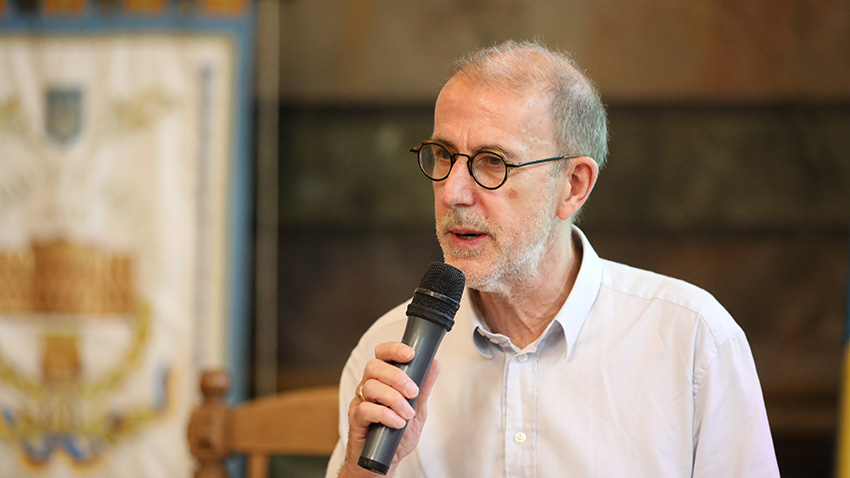The lectures was held as part of the Chalk Circle programme, as one of the components of the Stammering Circle exhibition, which presents research on the relationship between contemporary European philosophy and the period from the First World War to the full-scale war in Ukraine. Every day this week, a lecture takes place in the morning in the Assembly Hall of the main building, and in the afternoon a reading group discusses it in the Zachariewicz Hall.
Lectures by Peter Osborne, a British philosopher, researcher in the field of aesthetics and intellectual art, professor of modern European philosophy, director of the Centre for Research in Modern European Philosophy (CRMEP) at Kingston University in London, cover several topics that have become certain historical scenarios, products of wars – Experience, Existence, Subjects, World – and take place chronologically. The notion of Experience refers to the period of the First World War and its afterlife, Existence to the Second World War, Subjects to the time of decolonization, philosophical anthropology and the philosophy of the World, and raises questions of global modernity, conflict and historical time.
In his lectures, Osborne seeks answers to the questions of how the experience of war shaped twentieth-century philosophy, how philosophy responded to and reflected on wars, and finally, what role these concepts played during the war in Ukraine and how they changed under its influence.
In his lecture, which covered the period of the First World War and the post-war period until 1935, Peter Osborne spoke about the destruction and reconstruction of experience using the philosophy of Walter Benjamin, a German intellectual of Jewish origin, author of major studies, including The Theory of German Fascism and Towards a Planetarium.
Benjamin sees the cause of the war in moral weakness compared to technical power, when technology ceased to be subordinate to man and became an instrument of destruction. Its most brutal aspects, according to the philosopher, are due to the striking discrepancy between colossal technological means and scant moral comprehension – that is, between technical development and the spiritual blindness of humanity.
War is an experience that cannot be comprehended, concludes Benjamin. And it is hard for us, Ukrainians, who have now had our own recent experience of war, to disagree.
